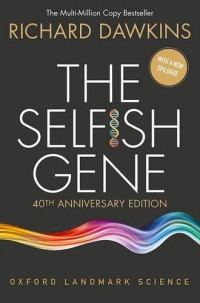- Main
- Psychology - Psychotherapy
- Healing Developmental Trauma: How Early...

Healing Developmental Trauma: How Early Trauma Affects Self-Regulation, Self-Image, and the Capacity for Relationship
Laurence Heller, Aline LaPierre¿Qué tanto le ha gustado este libro?
¿De qué calidad es el archivo descargado?
Descargue el libro para evaluar su calidad
¿Cuál es la calidad de los archivos descargados?
Although it may seem that humans suffer from an endless number of emotional problems and challenges, Healing Developmental Trauma presents a model for psychotherapy and growth showing that most emotional difficulties can be traced back to the compromised development of one or more five core capacities. These five core capacities are associated with biologically based core needs that are essential to our physical and emotional well-being: the needs for connection, attunement, trust, autonomy, and love-sexuality. Recognizing these needs as well as five Adaptive Survival Styles set in motion when the core needs are not met early in life, authors Laurence Heller and Aline LaPierre cut through the seeming complexity of life’s problems.
Explaining that an impaired capacity for connection to self and to others and the ensuing diminished aliveness are the hidden dimensions that underlie most psychological and many physiological problems, they introduce the NeuroAffective Relational Model® (NARM), a resource-oriented, psychodynamically informed approach that, while not ignoring a person’s past, emphasizes working in the present moment. NARM uses somatic mindfulness to re-regulate the nervous system and to resolve identity distortions—such as low self-esteem, shame, and chronic self-judgment—caused by developmental and relational trauma. Heller and LaPierre demonstrate how this therapy helps clients establish connection to the parts of self that are organized, coherent and functional, integrating the role of connection on all levels of experience as it affects a person's physiology, psychology, and capacity for relationship.
Explaining that an impaired capacity for connection to self and to others and the ensuing diminished aliveness are the hidden dimensions that underlie most psychological and many physiological problems, they introduce the NeuroAffective Relational Model® (NARM), a resource-oriented, psychodynamically informed approach that, while not ignoring a person’s past, emphasizes working in the present moment. NARM uses somatic mindfulness to re-regulate the nervous system and to resolve identity distortions—such as low self-esteem, shame, and chronic self-judgment—caused by developmental and relational trauma. Heller and LaPierre demonstrate how this therapy helps clients establish connection to the parts of self that are organized, coherent and functional, integrating the role of connection on all levels of experience as it affects a person's physiology, psychology, and capacity for relationship.
Categorías:
Idioma:
english
Páginas:
282
Archivo:
PDF, 1.55 MB
Sus etiquetas:
IPFS:
CID , CID Blake2b
english0
El archivo se enviará a su dirección de correo electrónico durante el transcurso de 1-5 minutos.
El archivo será enviado a tu cuenta de Telegram durante 1-5 minutos.
Atención: Asegúrate de haber vinculado tu cuenta al bot Z-Library de Telegram.
El archivo será enviado a tu dispositivo Kindle durante 1-5 minutos.
Nota: Ud. debe verificar cada libro que desea enviar a su Kindle. Revise su correo electrónico y encuentre un mensaje de verificación de Amazon Kindle Support.
Conversión a en curso
La conversión a ha fallado
Beneficios del estado Premium
- Envía a dispositivos de lectura
- Mayor límite de descargas
 Convierte archivos
Convierte archivos Más resultados de búsqueda
Más resultados de búsqueda Otros beneficios
Otros beneficios
Términos más frecuentes
Listas de libros relacionados
















































































































































































































































 Amazon
Amazon  Barnes & Noble
Barnes & Noble  Bookshop.org
Bookshop.org 









































